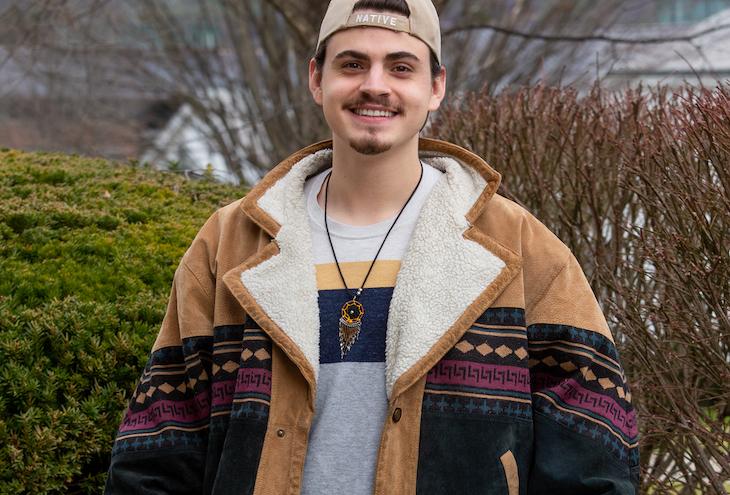Devon Parfait is grounded. Not in a bad way. As the future chief of the Grand Caillou/Dulac Band of Biloxi-Chitimacha-Choctaw, he wants to protect his people’s land. His tribes live among the bayous of southern Louisiana. Each year 30 square miles of their fragile ecosystem wash away due to habitat destruction caused by hurricanes and other forces.
Worse, his Native communities lose land at twice the rate of other low-lying areas.
And that’s a discovery he made. “It had never been studied before,” says Parfait, who will be a senior at Williams College in Massachusetts. “I proved through my own scientific research that Native Americans are being disproportionately affected by coastal land loss,” adds the geosciences major. “To produce something my tribes can use to advocate for themselves when talking about coastal land loss was so powerful to me. There are so many ways social justice interacts with geosciences.”
The field focuses on geology and includes related fields such as meteorology and oceanography. Parfait loves this discipline because, he says, “the Earth itself is such an interdisciplinary subject — places, people, they’re all interconnected.”
He plans to seek a policy-making position to advocate for his tribe. When he saw the results of his research, Parfait contacted the office of Louisiana Senator Bill Cassidy. They talked on the phone. As a result, Parfait will accompany Cassidy on a visit to tribal communities. He will intern in the senator’s office after graduating and may run for state representative.
“I draw my passion from people,” says Parfait. He grew up in Dulac on the bayou where his grandfather had a shrimp boat. His family had to move farther north in Louisiana when Hurricane Rita destroyed their home in 2005. “I’m mostly focused on coastal land loss and the tribes, but if I can be a state representative, I’ll be doing something for my tribes that will also benefit all Louisiana’s people,” he says.
Parfait wasn’t always as focused as he is now. He admits he struggled in high school and says he avoided homework. After graduating he took a semester off. “That was the best thing I could have done because I had no idea what I wanted to do,” he recalls. After three semesters in a community college, he went to a geosciences conference in Seattle where he met Williams students and their geosciences professor.
A life-changing moment came when Parfait had the opportunity to go on stage to speak on behalf of his tribe. “To be able to advocate for my tribe using my voice was an incredible feeling,” he says. “That’s what made me want to pursue my education.”
But when he applied to Williams, he was rejected. Unwilling to give up, Parfait participated in Williams-Mystic, a semester-long program that included a 10-day field seminar at sea. Alone on bow watch one night, he felt awed by the Milky Way. “I remember this absolute feeling of love and joy. Experiences and emotions rushed through me. I just cried my eyes out,” he recalls. His time at sea changed his life. Refusing to give up, he applied to Williams again and was accepted.
Today Parfait is deepening his tribal connections. He is being tutored by the tribes’ current chief. After his family moved away from tribe members, his grandfather always had a tepee in their backyard. “He was a conduit of the culture, always doing Native crafts — making a headdress, medicine bags, and walking sticks.” He credits his mother with instilling in him respect, kindness, and love for others.
Parfait admits there were times he wanted to give up, but he says, “I thought about my tribe and my community and the things they go through. Even now in college, that’s my biggest driver.”
And it is driving toward a path of helping his tribes and the wider community. “I want to do things to benefit my family, my home, and the place and people I love,” Parfait says. “When I think about what legacy I want to leave behind, I want it to be a legacy of helping people.”














